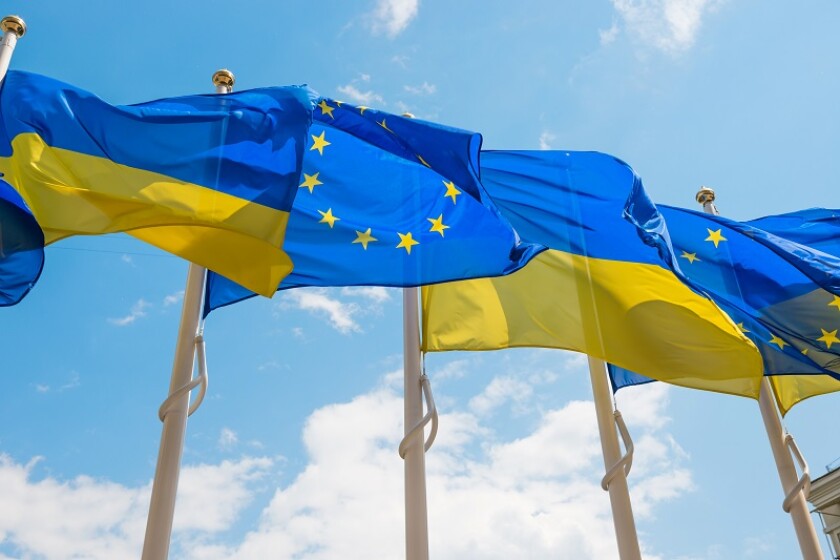There was something particularly moving about the way the entire assembly stood up and clapped for a solid minute following Ukrainian president Zelenskiy’s speech in front of the European Parliament this week.
It was a significant moment of pride for all Europeans, or at least it should have been, witnessing what was probably the most significant moment of unity between European countries since the end of World War II.
Ever since then, it is fair to say we have mostly been living in an US-centric world. International treaties like the Marshall Plan, the Bretton Woods agreement and the North Atlantic Treaty Organisation (NATO), though all key to Europe’s recovery and prosperity, largely dominated much of the second half of the past century’s politics and international relations.
And yet, it seems the international scene may have finally reached a turning point.
The way Europe has rallied and shown unified resistance in the face of adversity over the course of the past week is unprecedented in the modern era. So is the fact that, contrary to Putin’s expectations, the EU was the first to come out with the most severe sanctions against Russia.
See also: Sanctions on Russia could affect wider markets
In a public address to the French this week, president Macron exemplified this newfound European togetherness. “The war in Ukraine marks a breakup for our continents and our generations,” he said. “Europe has already displayed unity and determination. It has entered a new era. We must proceed.”
Europe, Macron insisted, needs to invest more to depend less on other continents and be able to decide for itself. In other words, it should become a more independent and sovereign power – sovereignty, the president had said upon taking up the European Council presidency earlier this year, is freedom.
When Macron made this speech, the conflict that has since befallen Europe seemed unlikely. Yet, those words have never rang truer or been more appropriate. Now more than ever, the EU seems aware of the need to become self-sufficient – politically, economically, and energetically.
After years of being accused of lacking leadership, independence and sovereignty, this could be the moment when the EU steps up and seizes the opportunity to start leading the international policy agenda.
See also: Capital markets brace for invasion fallout
The same logic can be applied to financial services and regulation. Long-standing projects such as the banking union, the capital markets union and the European single access point, would all greatly benefit from a share of the unified momentum spurred by the current crisis.
As a source recently pointed out, deep structural reform is difficult to drive in stable times. A financial crisis is arguably the best time to push through an ambitious regulatory agenda.
Furthermore, a key blocker to achieving meaningful progress on these subjects has been the lack of harmony between member states’ rules and market structure. With economic sanctions against Russia now at their peak, there will be a need to monitor that these are scrupulously respected and obeyed, which will unavoidably require increased cooperation between countries.
There is also much to say on the subject of anti-money laundering and the emergence of new regulatory body AMLA (Anti-Money Laundering Authority), which will soon replace the European Banking Authority (EBA) in this capacity. “It’s important not to lose the momentum that exists on this,” a source recently said.
Whether the current context sways the EU’s agenda in any way, and whether freshly-formed-AMLA’s oversight will be tweaked to increase its focus on tracking sanctions against oligarchs and financial institutions, is something that should be monitored closely.
Finally, rising cyber threats stemming from Russia could also play a part in shaping the regulatory agenda in the ever-growing crypto space – especially given the prominent place it has been given in the French EU presidency programme.
The conflict currently unfolding in Europe has the potential to be a real catalyst for change, presenting a real opportunity for the EU to tip the balance of power and foster its position as a global leader – in financial services and elsewhere.
As one source recently said in an attempt to assess the current situation, we should all hope that this crisis is not a prelude to something worse. There are high chances that it won't be: just as the Phoenix rose from the ashes, Europe too, will rise.
See also: Tougher sanctions on Russia needed

